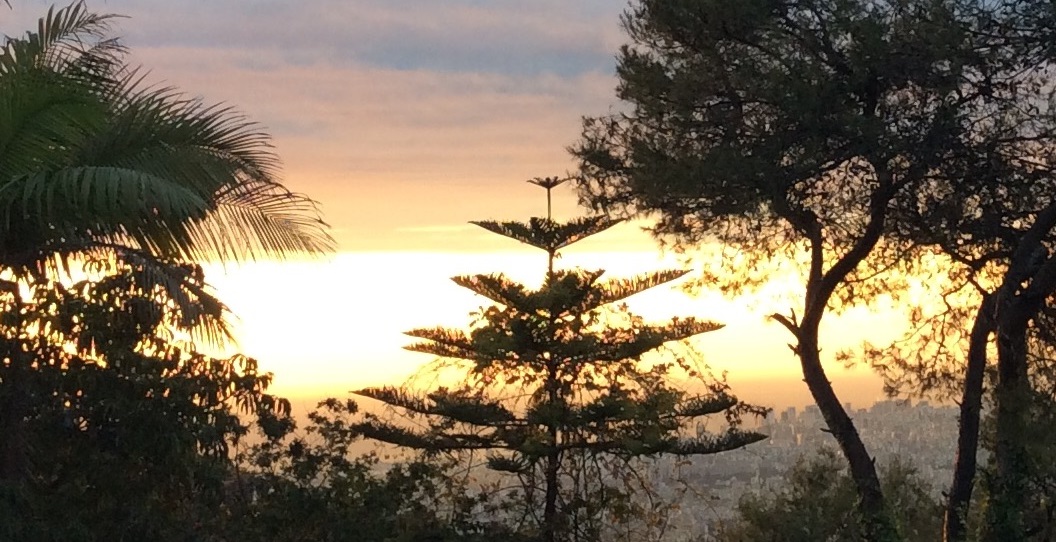- Posted on : February 8, 2013
- Posted by : Tom Fletcher
Diplomats hate making predictions. Churchill once said that you could ignore every other page of Foreign Office advice, because it tended to be in the form of ‘on the one hand’ and ‘on the other hand’. The files are full of pre-election telegrams that hedge their bets.
There are good reasons for this. We don’t like being wrong. And the more we study international politics, the more we realise how unpredictable it all is.
So this blogpost is no crystal ball. But – amid the short term pessimism – many people have been talking to me about the future of Lebanon. So I wondered what my successor would write in his report following the 100th anniversary celebrations in Lebanon in 2020. Here is one of several possible versions.
“Dear Foreign Secretary,
I represented you at today’s centenary celebrations in Beirut.
There were many international leaders present. Lebanon’s new wealth, the result of huge amounts of offshore gas, is attracting great interest. The Eurozone President commented to me that Lebanon was now Singapore with more skiing, or Qatar with more culture.
The highlight of the celebration was the participation of so many talented poets, musicians and film makers. Since the end of the Syrian occupation, Lebanon has re-emerged as the epicentre of the Arab Cultural Renaissance, as you know from the high numbers of film and music downloads in the UK.
The newly elected Syrian President was guest of honour. The Treaty of Recognition and Cooperation signed between Syria and Lebanon in 2014 established an equal relationship. The border was demarcated, and Lebanese businesses and community leaders of course played a key role in the reconstruction of Syria following the terrible 2011-13 civil war.
I spoke to many MPs in the margins. Most are now under the age of 40, the post civil war generation. Many returned from ex-pat jobs overseas to help lead the country. Where once we spoke of a Brain Drain, we now see a Brain Gain. New technology has allowed the Lebanese diaspora to create one of the world’s most dynamic global business networks, with Beirut as the hub between Europe and Asia. In her speech, the President (one of the first citizens to have a civil marriage with a partner from another confession) said that as global power shifts South and East, we are on the cusp of a new Levantine age.
The 2014 Beirut Accord still seems to be working well. Of course, Lebanon wouldn’t be Lebanon without some animated debate over political representation. But most parties feel their interests are safeguarded. For me, the key moment was the rebuttal by Lebanon’s leaders of international offers to oversee the ‘reset’ of Lebanon’s constitutional settlement. By insisting that this should be a Lebanese-led process, they ended the vicious cycle of external meddling and patronage. For the first time, the constitutional settlement is truly Lebanese.
There was little political debate at the ceremony itself, though politics is as lively as ever. The key dividing line is over what to do with the income from gas. The One Lebanon (centre left) party want to give each Lebanese citizen a dividend. The One Nation (centre right) party want to retain a sovereign wealth fund. I bumped into two older MPs, the last to still use the labels March 8 and March 14. The only party to retain a sectarian basis lost its last seat at the 2017 elections, though the Senate continues to act as the safeguard for cross-confessional interests.
Alphabetical protocol meant that the Ambassadors of Israel and Iran were sat near to Great Britain, both in animated conversation. The 2015 peace agreement between Israel and Lebanon has of course been a key part of the regional gas boom. Borders were settled in the South, and both sides pledged no further aggression. The establishment of Palestine the same year, following intense US-led engagement, meant the return of many Palestinian refugees from Lebanon. Western tourists now visit Israel, Palestine, Syria and Lebanon on the same trip, and many Lebanese Christian and Muslim pilgrims from Lebanon visited Jerusalem last year.
Lebanon’s kaleidoscope nation was out in force, a vivid reminder of the different groups who have made this land their home over the centuries. Having paid the price in the past for sectarian division, Lebanon is now a talisman for coexistence, and delegations regularly visit from countries in conflict to study the lessons. Among the leaders present, Sayyed Hasan Nasrallah confirmed that his party remain strongly committed to the reform process and – under their 2014 charter – renounce violence and put Lebanon’s interests before those of any external country. As in Northern Ireland, it is remarkable to see how far a number of former militias have come, committing to a genuinely national project. They have more political power as a result. The National Guard, including many former resistance fighters, marched proudly alongside the rest of the Lebanese army, many of whom have now returned from peacekeeping missions on several continents.
I arrived at the ceremony on the new citytrain, one of the flagship projects of Lebanon 2020, a private sector driven modernisation project. Beirut now has the world’s first car-free city centre, and oil and gas revenues have funded the repair of the National Grid, leaving generators a distant memory. The effort to discover and renovate ancient ruins remains at the heart of the remarkable tourist boom of recent years. Beirut is now the top citybreak destination for Brits, and many will I’m sure join me in Sky Bar tonight to continue the celebration.
Lebanon at 100 is an extraordinary, talented, resilient, hopeful, diverse, beautiful and enchanting place. I look forward to the next Royal visit.
Yours, HM Ambassdor Beirut
PS, it was a pleasure to see my predecessor Tom Fletcher win the 100m and 200m at this year’s Olympics.”
A fantasy? Naive? It depends on you. Tell us what you think. #Leb2020

